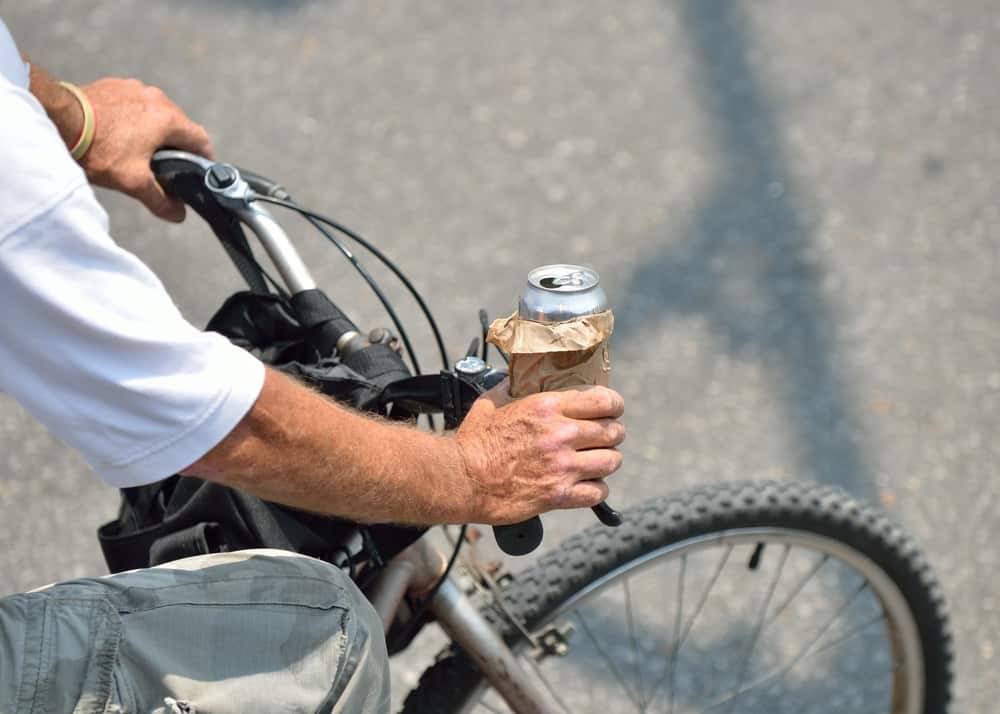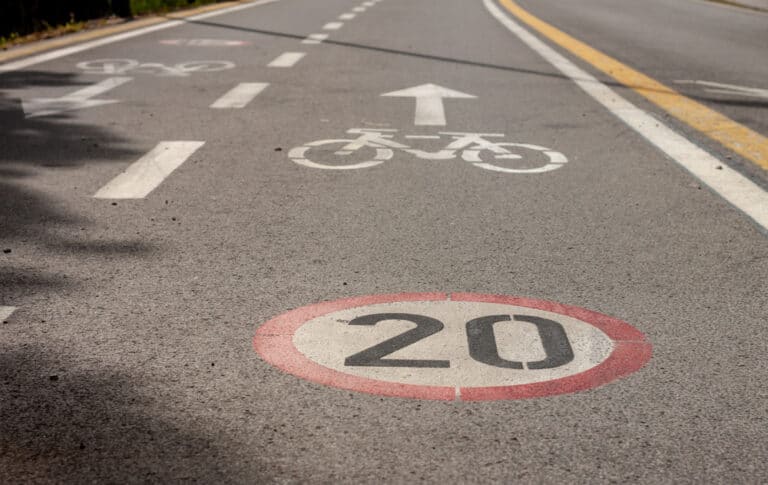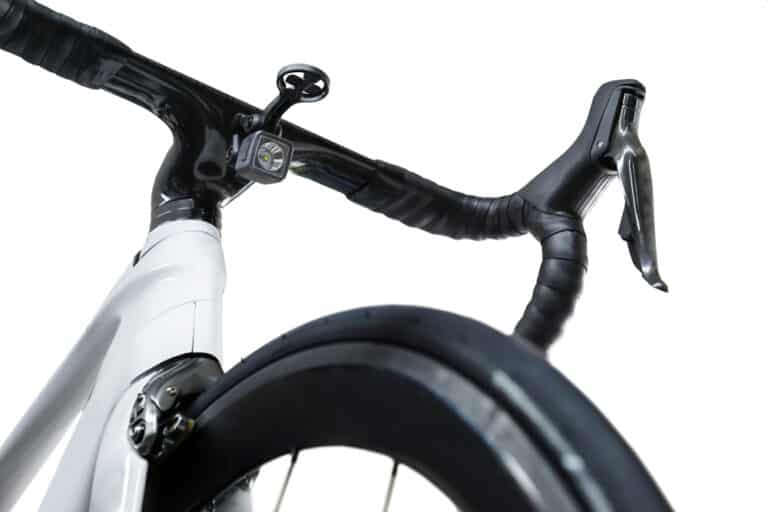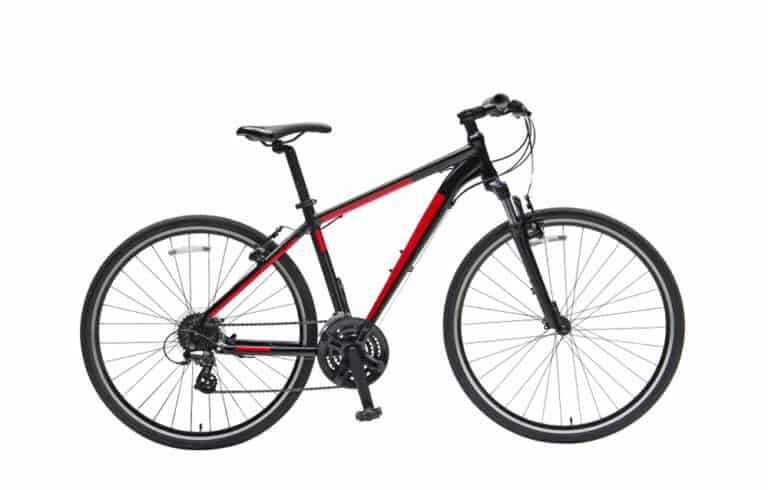Can You Get A DUI On A Bicycle?

If you’re planning a night out drinking and know your ride home is a bicycle, you might consider brushing up on your state law first to avoid getting a DUI. Although I cycle, I admit that the idea of cycling while intoxicated hadn’t crossed my mind. However, that doesn’t mean it’s a foreign concept or that people don’t rely on bicycles as a means of getting home. So, is there potential for a DUI on a bicycle?
It’s possible to get a DUI on a bicycle in states like California because their definition of a vehicle includes bicycles; states like Nevada do not. For instance, in California: every device in, upon, or by which any person is transportable. In Nevada: every self-propelled vehicle – which excludes bikes.
The law is pretty strict regarding DUI offenses but becomes less so when it involves bicycles. While you may not get a DUI on a bike in Nevada, you are still liable for a CUI (cycling under the influence), and if your intoxication led to someone sustaining a severe injury, you would face fines and jail time. Let’s delve into the fine details of DUI law on a bicycle so that you know the risks.
Is There Potential For A DUI On A Bicycle?
Riding a bicycle while inebriated is not unlawful in general. However, given that there are 50 states, each with its own set of laws on specific concerns, it is not unreasonable to expect some deviations.
Many states allow you to receive a DUI while riding a bicycle because of how the state DUI statutes interpret the idea of a vehicle. Most states have DUI statutes that only apply to motor vehicles and do not apply to motorless bicycles.
However, DUI regulations in certain jurisdictions apply to all vehicles, whether motorized or not. As such, a person riding a bicycle might receive DUI charges under this newer legislation.
DUI rules in Colorado, for example, ban driving while under the influence of a motor vehicle or vehicle; bicycles are included in the definition of a vehicle. Similarly, in Florida, courts have construed the DUI legislation, which solely pertains to driving while intoxicated, to encompass bicycles.
In comparison, the State of Illinois defines a vehicle as anything that is not powered by humans, with the exception of motorized wheelchairs. In other words, you can acquire a DUI while riding a motorbike, a tractor, your lawnmower, or – believe it or not – a horse-drawn carriage, but not while riding a bicycle.
Let’s take a closer look at Illinois, Pennsylvania, Nevada, and California to see how getting a DUI on a bicycle varies by state.
What Are The DUI Laws For Illinois?
Under the Illinois Vehicle Code, a vehicle is every device that permits transportation for a person or object on a highway. It encompasses roads and what we generally consider a highway but excludes human-powered, track-based vehicles like snowmobiles.
An automobile, for example, is a vehicle since it carries people and items, drives on highways and roads, is powered by a person, does not run on rails, and is not a snowmobile.
A truck, motorbike, tractor, moped, or scooter will also fall under this category. You’ll see that the vehicle does not need a motor, so even a horse may fit the bill!
This term also includes most off-road vehicles and motorcycles, generally known as ATVs and dirt bikes. As a result, an ATV or dirt bike would also be deemed a vehicle for DUI reasons.
On the other hand, a bicycle would not classify as a vehicle for DUI because it may run on a roadway and get power from a human riding the bike. If DUI was conceivable on a bicycle and the rider lacked a license, it would be the same as an unlicensed, intoxicated person in a vehicle, on a motorbike, or lawnmower.
What Are The DUI Laws For Pennsylvania?
Operating a vehicle, including bicycles, with a BAC (blood alcohol content) of more than .08 is illegal in Pennsylvania. While vehicles are the most commonly implicated kind of vehicle in DUI prosecutions, they are not the only type of vehicle eligible for a DUI.
The State of Pennsylvania law defines a vehicle as every device in, upon, or by which any person or property is transportable or drawn upon a highway, except devices used exclusively upon rails or tracks. (Vehicle code 102)
A wheelchair that is self-propelled or an electrical mobility device operated and intended only for people with mobility-related disabilities does not fall under this definition.
However, bicycles, dirt bikes, mopeds, and scooters, along with automobiles, trucks, SUVs, and motorcycles, are vehicles that can result in a DUI under this classification.
In fact, an examination of the word vehicle as it appears throughout the remainder of the Vehicle Code reveals that it has a broad definition. As a result, it can be detrimental to people accused of DUI on bicycles.
Furthermore, not having a driver’s license in Pennsylvania is irrelevant; you don’t need a driver’s license to ride a bike.
For instance, Pennsylvania police charged Frank Aritz Jr. of State College with a DUI for riding his bicycle in downtown State College with a .162 BAC level. Police spotted Aritz riding his bike without a headlamp on East Beaver Ave. and on the South Allen St. bike route, per the CDT.
Unfortunately for Aritz, since intoxicated cyclists receive the same treatment as vehicle drivers, he was guilty of DUI, according to Pennsylvania law. You can find out more about the ruling by checking the court transcript.
Furthermore, not having a driver’s license is inconsequential in Pennsylvania; riding a bike does not require a driver’s license.
For example, Frank Aritz Jr. of State College, Pennsylvania, was charged with DUI after riding his bicycle in downtown State College with a.162 BAC level. According to the CDT, police observed Aritz riding his bike without a headlamp on East Beaver Ave. and the South Allen St. cycling lane.
Unfortunately for Aritz, drunken cyclists receive the same treatment as drunk drivers. Consequently, the court found him guilty of DUI under Pennsylvania law, and criminal charges were filed against him. You may consult the court transcript to learn more about the judgment.
So, if you want to drink and ride a bicycle home, be sure you are aware of the legislation in your state!
What Are The DUI Laws For Nevada?
According to the State of Nevada law, a vehicle is every self-propelled vehicle and every vehicle that moves with electric power obtained from overhead trolley wires but not operated upon rails. A motor vehicle includes a moped but excludes an electric bicycle. As a result, a bicycle doesn’t qualify because it is not self-propelled.
As a result, riding a bike while intoxicated or high is not a violation of Nevada DUI regulations. The state’s drunk driving laws apply only to cars and motorcycles, not bicycles or electric bikes.
In Nevada, drunk biking is usually abbreviated as CUI, meaning cycling under the influence, relating to alcohol and controlled drugs. Regardless, inebriated cyclists may face criminal allegations of reckless endangerment.
People who ride their bikes while under the influence of alcohol or drugs face prosecution in Nevada for reckless endangerment (NRS 202.595). The courts will consider the offense a gross misdemeanor, with the guilty person facing a hefty fine or up to 364 days in prison.
If the CUI causes severe physical harm to someone other than the rider (NRS 0.060), reckless endangerment becomes a category C felony. The rider faces a punishment of 1 to 5 years in Nevada State Prison and a fine of up to $10,000.
Since CUI convictions are not the same as DUI offenses, cyclists convicted of riding while intoxicated will not have their driver’s licenses suspended.

What Are The DUI Laws For California?
California has strict laws that prohibit biking under the influence. However, in this state, violators will receive prosecution under the drunk biking law rather than the DUI laws that apply to motor vehicles.
California Vehicle Code 21200.5 VC makes it a crime to cycle under the influence. It applies when you ride a bicycle on a public road, path, or highway while under the influence of alcohol, drugs, or both. A conviction is a misdemeanor that is punishable with a fine of $250 but carries no jail time.
California has stringent regulations against bicycling while intoxicated. In this state, however, offenders will face charges under the drunk biking legislation rather than the DUI rules that apply to motor vehicles.
Cycling under the influence is a violation of California Vehicle Code 21200.5 VC. It applies when you ride a bicycle on a public road, path, or highway while impaired by drink, drugs, or both. A conviction is a misdemeanor that includes a punishment of a $250 fine but not jail time.
The law in California states can be a little tricky because it can and can’t get you a DUI. What does that mean?
A DUI in California occurs when someone operates a motor vehicle on a public roadway while under the influence or above a .08 blood alcohol level – did you notice the word motor? You can get a DUI on a bicycle in California, but before that, the offense needs to pass additional criteria – the motor must have more than a specific horsepower.
Under California Vehicle Code 406(b), a bicycle must:
- Have pedals and an electric motor with a maximum output of 1,000 watts.
- Be unable to travel faster than 20 mph on level ground, even with assistance pedaling.
A motorized bicycle or moped that meets these specifications does not require a license plate, registration fee, or insurance. Since they do not qualify as motorized vehicles, you cannot be charged with DUI if your bicycle fulfills or falls short of the conditions above.
However, it is crucial to note that you must still be 16 years old and wear a properly fitting bicycle helmet anytime you ride.
Furthermore, California Vehicle Code VC 415, section (a) defines the term motor vehicle:
- A motor vehicle is a vehicle that does not get power from a human; it’s self-propelled.
However, section (b) states there is an exception for the following motorized vehicles:
- The term Motor vehicle excludes a self-propelled wheelchair, motorized quadricycle, or tricycle if operated by a person who, due to physical disability, is otherwise unable to move about as a pedestrian.
So, can you acquire a DUI while riding a bike? It all depends on the fine details. Whether the motor was electric or gas for bicycles and DUI offenses makes no difference. If it exceeds the wattage or horsepower specified in the rules, it counts as a motor vehicle, and the DUI laws apply to prosecute someone with a felony.
At the same time, authorities cannot arrest you or someone else with DUI on a bicycle if it is less than the legal wattage or horsepower.
Why Aren’t There Licenses For Bicycles?
In its most basic form, the law does not consider bicycle licenses required because they cannot do serious harm to others.
Bicycles do not weigh 1.5 tons or travel at speeds exceeding 62 miles per hour (100 kph). The amount of harm to other people’s lives or properties caused by a careless biker is so minor that it becomes national news when it occurs. On the other hand, death by motor vehicles is so common that unless the victim is well-known, it is only a statistic.
We require licensing to handle anything that puts others in danger instead of the large metal boxes themselves that we call automobiles.
Similarly, you must have a license to run huge steam boilers or water treatment plants. Rowboat operators do not require a license, but cruise liner captains do. Regarding air travel, hang gliders do not require a license, but flying a Boeing 747 without one would be absurd.
For these reasons, each state must define the term vehicle precisely since it influences the consequences of intoxication or crimes committed while riding a bike.
Will Getting Bicycle Licenses Make People Ride More Safely?
While bicycle licenses may appear to be a fantastic idea at first, the fact is that adding more criteria to anything reduces participation.
People who could formerly get on their bikes and ride to their destination will find it frustrating if they require a license. More individuals will reject the concept of riding bicycles if there is a theoretical exam, and even fewer will want to participate if there are practical competence assessments.
When costs make an appearance, interest will dwindle even further, especially if riders must renew their licenses on an annual basis. Riders may eventually opt to disregard any laws because the laws would turn something that was previously relatively straightforward into a nightmare.
Finally, will the licensing be strictly enforced? It will almost certainly divert essential resources from law enforcement while turning regular people into criminals and creating disdain for the law.
Conclusion
Your state can prosecute you for intoxication on a bicycle if they include bicycles in their vehicle code. Even then, there are criteria that determine a bike, and you could get away with a DUI if, for example, your bicycle doesn’t meet the horsepower requirements to be a vehicle. Thus, brush up on your state law before you plan to cycle the next time you are drunk.
Sources
- https://www.quora.com/You-can-get-a-DUI-DWI-on-a-bicycle-If-you-do-not-have-a-drivers-license-and-are-stopped-while-intoxicated-and-on-a-bicycle-what-happens
- https://www.nolo.com/legal-encyclopedia/can-you-get-a-dui-on-a-bicycle.html
- https://www.ilga.gov/legislation/ilcs/fulltext.asp?DocName=062500050K18b-101
- https://www.davidmckenzielawfirm.com/dui-lawyer/dui/dui-definition-of-a-vehicle/
- https://law.justia.com/codes/nevada/2013/chapter-483/statute-483.090
- https://www.legis.state.pa.us/WU01/LI/LI/CT/HTM/75/00.038.002.000..HTM







